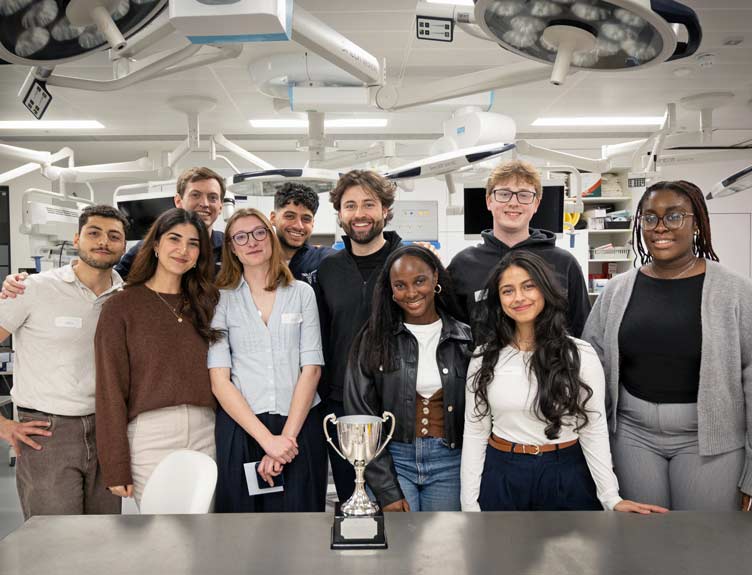Professor Agnes Binagwaho receives Cameron Award for Population Health

RCSI University of Medicine and Health Sciences has presented the Cameron Award for Population Health to Professor Agnes Binagwaho, co-founder and former Vice Chancellor of the University of Global Health Equity (UGHE) in Rwanda.
The Cameron Award for Population Health recognises leaders who have made outstanding contributions to public health and health equity. It commemorates the legacy of Sir Charles A. Cameron, a former President of RCSI whose pioneering work in 19th-century Dublin transformed sanitation, housing and public health.
Previous recipients include Dr Mike Ryan of the World Health Organization and Professor Andrew Morris, Director of Health Data Research UK.
Professor Binagwaho, MD, MPed, PhD, is a distinguished global health leader whose career has been devoted to advancing equitable access to healthcare and strengthening health systems in low and middle-income countries. She co-founded UGHE in 2015 as an initiative of Partners In Health, aiming to transform how health professionals are trained to deliver high-quality, equitable care worldwide.
A Rwandan paediatrician, Professor Binagwaho returned home in 1996 following the 1994 Genocide against the Tutsi and played a pivotal role in rebuilding the country’s health system. She served in senior government positions until 2016, including Executive Secretary of the National AIDS Control Commission, Permanent Secretary of the Ministry of Health and Minister of Health for five years.
Professor Binagwaho has co-chaired the Millennium Development Goal Task Force on HIV/AIDS and Access to Essential Medicines, and holds academic appointments at UGHE, Harvard Medical School and Dartmouth’s Geisel School of Medicine. She currently serves on the boards of the Rockefeller Foundation, the African Europe Foundation, the Cummings Foundation and the African Union Commission for Infectious Diseases Response.
A member of the US National Academy of Medicine, the World Academy of Sciences and a fellow of the African Academy of Sciences, Professor Binagwaho has authored more than 250 peer-reviewed publications. She was named among the 100 Most Influential African Women (2020–2021) and received the 2022 L’Oréal-UNESCO Award for Women in Science.
Professor Binagwaho’s contribution to advancing health equity and system strengthening reflects the shared focus of RCSI’s School of Population Health on driving advancements in local and global population health through research, education and collaboration, and RCSI’s institutional commitment to the third UN Sustainable Development Goal which addresses health and well-being.
At the award ceremony Professor Binagwaho delivered a lecture which explored 'Health Equity and Improving Health Systems'. Speaking on the significance of this topic, she commented: “Community engagement is the cornerstone of meaningful progress in health equity and the strengthening of health systems. In Rwanda and across sub-Saharan Africa, the most successful health programmes share a common foundation: genuine community buy-in. Building resilient health services depends on trust and demystifying health sciences within our communities is an essential part of that process. Alongside development partners, universities have a vital role to play in driving this approach.”
Professor Cathal Kelly, Vice Chancellor of RCSI University of Medicine and Health Sciences, said: “Professor Agnes Binagwaho exemplifies the values of equity, compassion and global collaboration that we celebrate through the Cameron Award for Population Health. Her leadership in rebuilding and reimagining Rwanda’s health system, and her commitment to educating the next generation of healthcare professionals, serve as an inspiration to all of us working to advance population health worldwide.
“Equally, working to improve equity is a foundational, cross-cutting principle of the School of Population that guides their work and engagement with policymakers, health services, communities and other stakeholders. We are proud to see this principle is evident in the School’s research projects, addressing challenges from air pollution to diabetes, in Ireland and in countries across the globe, following Cameron’s legacy."



